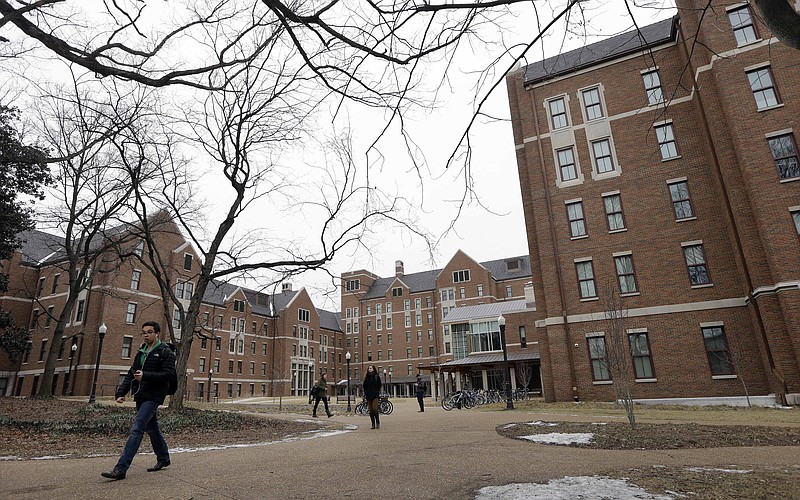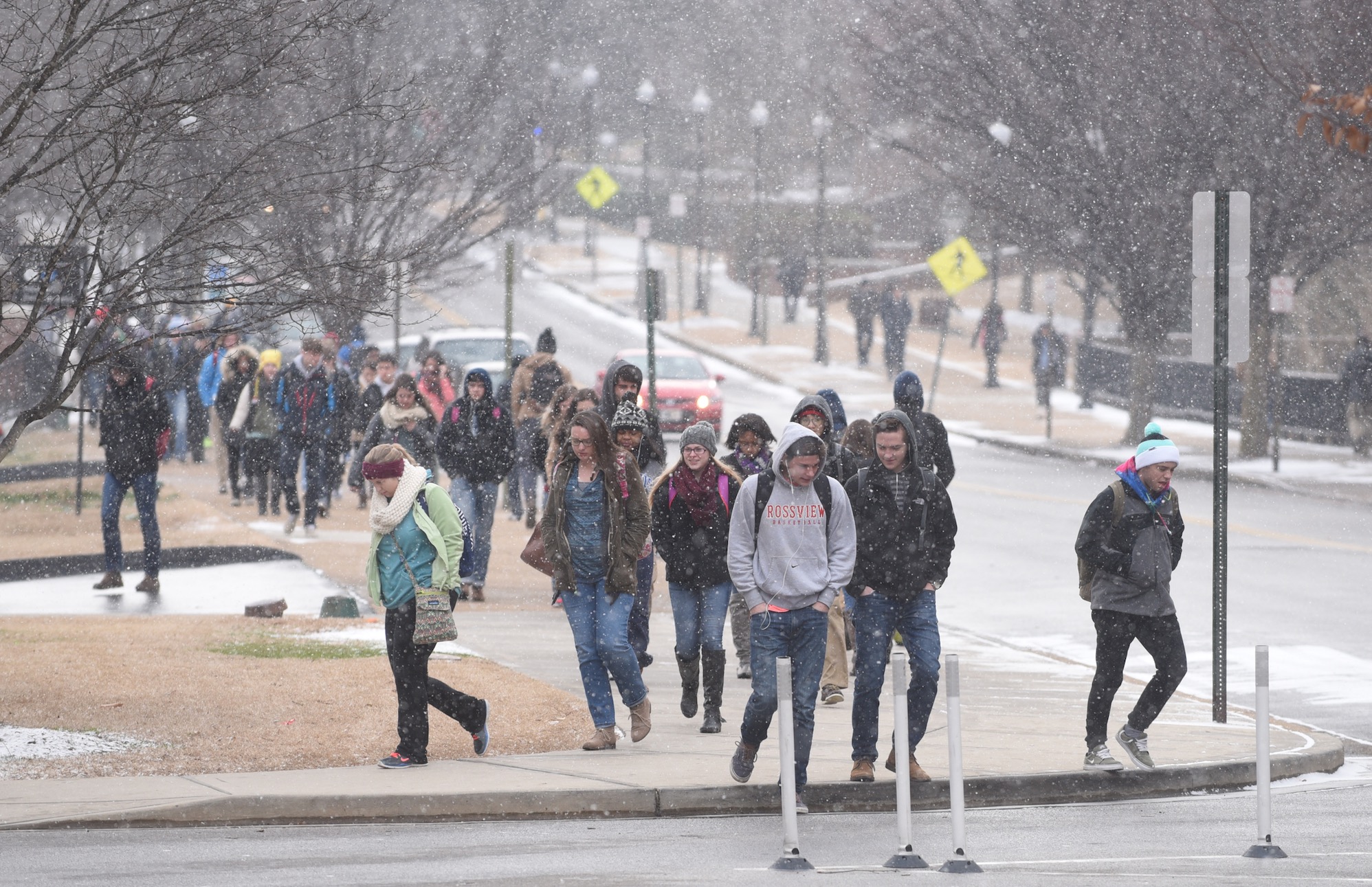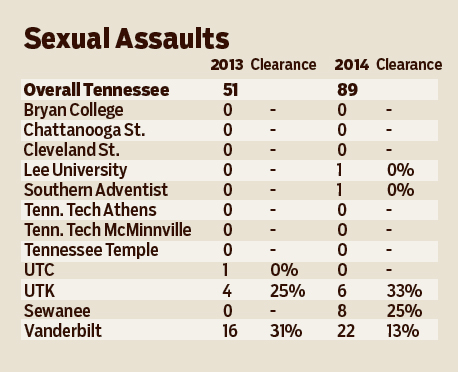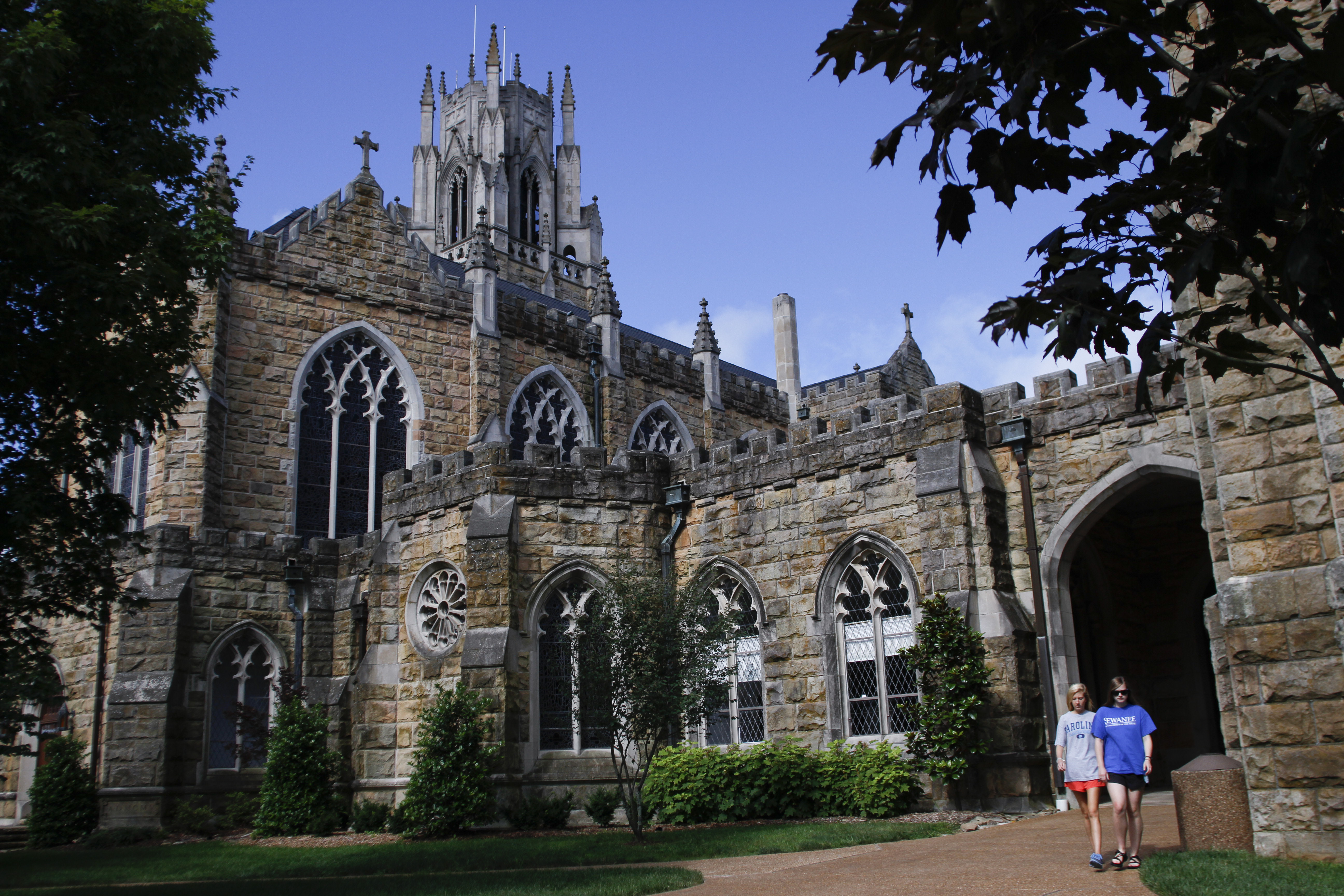I think the climate we're all trying to create is one of openness and reporting. We don't want anybody to not report."
A dramatic spike in the number of sexual assaults reported at Tennessee college campuses over the last year is a positive sign that more public awareness and aggressive school policies are encouraging more victims to come forward, sexual assault advocates say.
In the last year, sexual assaults reported at colleges statewide increased 75 percent -- from 51 incidents in 2013 to 89 in 2014, according to the Tennessee Bureau of Investigation's annual crime on campus report, which was released Monday. Reported on-campus rapes increased from 26 to 46.
"At this moment in time, we want the numbers to go up. That means we're doing something right," said Cara Tuttle Bell, director of Vanderbilt University's Project Safe Center for Sexual Misconduct Prevention and Response, which was established as a standalone resource center for sexual assault victims last summer. "I don't think we have reason to believe the number of incidents is going up. Unfortunately, the number of incidents has just long been too high. We believe that this means people feel more comfortable saying, 'This is wrong, this should not have happened to me, it's not my fault.'"
Vanderbilt reported an increase from 16 to 22 forcible sexual assaults in 2014, while The University of the South in Sewanee saw a leap from zero to eight. The University of Tennessee at Knoxville saw an increase from four to six, and Southern Adventist University and Lee University each reported one sexual assault.
Meanwhile, the University of Tennessee at Chattanooga reported zero sexual assaults in 2014, down from one in 2013. Chattanooga State Community College, Cleveland State, Bryan College and Tennessee Temple University also reported no sexual assaults.
But in some cases, a zero may be more of a red flag than a badge of honor, Tuttle Bell said.
"Given how prevalent we know sexual violence is everywhere on and off campus, a zero should raise some eyebrows because people don't feel comfortable coming forward," she said.
Advocates such as Tuttle Bell say the national spotlight on sexual assault on campuses is helping to increase reporting. High-profile cases -- like the two Vanderbilt football players convicted in January of the 2013 sexual assault of an unconscious woman -- have sparked student activism and closer scrutiny of universities' procedures for handling reported assaults. More universities are being forced to change their policies, and students are partnering with newly formed programs like Project Safe to reduce the stigma often faced by assault victims.
Nothing in the state's system for reporting sexual assaults has changed in the last year, TBI spokesman Josh DeVine said. He said the state agency does not seek to "understand the why behind the numbers, we only compile the numbers and turn around the reports."
Mike Hayes, vice president for student development at Lee University in Cleveland, said the private college has worked hard to educate students on how to report instances of sexual assault. In 2014, the TBI reports, Lee had one claim of forcible sodomy -- a claim that was unsubstantiated, Hayes said.
"Creating a safe campus environment is a top priority for Lee University," Hayes said. "We feel that our numbers accurately reflect what's occurring on campus."
Officials at the University of the South -- which went from no forcible sex offenses in 2013 to five forcible fondling reports and three forcible rapes reported in 2014 -- recently opened up an internal reporting system that previously went only to the dean of students. Now all cases, complaints and anonymous tips are forwarded to local police and included in Sewanee's TBI statistics -- whether they were investigated by law enforcement or not.
"An increase in reporting does not necessarily mean an increase in crime on campus," Sewanee spokeswoman Laurie Saxton said. "Like many other universities, Sewanee has increased education and emphasis to students about the importance of reporting any incidents."
All college campuses are required by law to report all crime data to the state, whether it has been reported directly to a campus safety agency or local law enforcement. While the 2014 report shows an increase in sexual assaults, overall crime on campuses is down 6.3 percent since last year, with notable drops in thefts and alcohol-related offenses like DUIs -- which dropped 35 percent.
Advocates say they hope that more attention on sexual assaults eventually will bring the numbers down. But right now, Tuttle Bell says, schools need to focus on creating environments where students feel safe and supported when they need to make a report.
"When [colleges] do that, more people will come forward," she said.
Community colleges generally have fewer reported cases of sexual assault, which many credit to the lack of on-campus housing. But even still, Chattanooga State spokeswoman Eva Lewis said the school is working to educate students and staff about sexual violence.
"I think the climate we're all trying to create is one of openness and reporting," Lewis said. "We don't want anybody to not report."
Contact staff writer Kate Belz at kbelz@timesfreepress.com or 423-757-6673.
Contact staff writer Kevin Hardy at khardy@timesfreepress.com or 423-757-6249.



